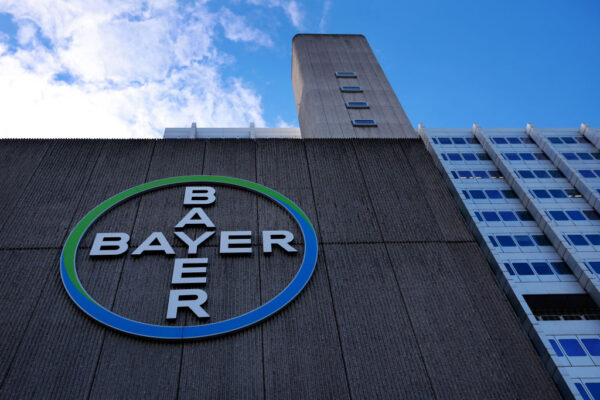
Bayer is implementing a corporate restructuring that will slash an unspecified number of jobs, particularly within management. But the strategy does not include a breakup of the conglomerate—at least not yet.
In announcing its new strategy late Wednesday, Bayer said it aims to reduce hierarchies and eliminate bureaucracy in the company. The job cuts will happen over the coming months and will be completed by the end of next year at the latest, the company said.

With the Rise of AI, What IP Disputes in Healthcare Are Likely to Emerge?
Munck Wilson Mandala Partner Greg Howison shared his perspective on some of the legal ramifications around AI, IP, connected devices and the data they generate, in response to emailed questions.
Bayer’s corporate shakeup is not entirely a surprise. CEO Bill Anderson, who joined Bayer last June after serving as the chief executive of Roche’s pharmaceuticals division, has been critical of bloat and inefficiency within the company. In Bayer’s report of third quarter 2023 financial results last November, Anderson said employee surveys found that 90% of workers claim pride in working for a company with Bayer’s mission, but only 10% of respondents believe the current system allows for appropriate decision making. He added that cost-cutting programs have failed to yield sustainable results.
“Despite numerous reorganizations, the number of senior leaders has remained the same,” Anderson said. “And there are still 12 layers between me and our customers. That’s simply too much.”
Anderson went on to say that by the end of 2024, Bayer will remove multiple layers of management. He added that 95% of the decision making in Bayer will shift from managers to the people doing the work. Bayer calls its new operating model “Dynamic Shared Ownership.”
Bayer breaks out its business into three reportable segments: pharmaceuticals, consumer health, and crop science. Measured by revenue, crop science is the largest of the three. In its report of third quarter 2023 financial results, Bayer said revenue across all three units totaled €35.7 billion through the nine months ending Sept. 30, down 7.7% compared to the same period in the prior year. In the first nine months of 2023, Bayer reported a €4.2 billion loss versus a €3.5 billion profit in the same period in 2022.
Some investors have called for Bayer to break off its business segments into separate companies, a move that would follow in the footsteps of some of its life science industry peers. In recent years, Merck, Pfizer, Johnson & Johnson, and GSK have all spun out their consumer health divisions as standalone companies. Last fall, Novartis completed the spinoff of Sandoz, its former generics and biosimilars unit. Going back further, Pfizer and Eli Lilly are examples of big pharma companies that successfully spun out animal health divisions. In that regard, Merck is an outlier as a big pharma company that still retains an animal health unit.
Heike Hausfeld, chairwoman of the Central Works Council of Bayer, said in a prepared statement that the employee representative group is “vigorously campaigning” for the company to continue with all three divisions. Nevertheless, she acknowledged that company’s programs and measures underway are insufficient, “which is why, with a heavy heart, we have agreed to further cuts,” Hausfeld said. Barbara Gansewendt, chairwoman of the Bayer AG Group Executives’ Committee, which represents managerial employees, said those losing jobs will receive severance and support, adding that the job cuts are an “extremely bitter development for us, but there is no viable alternative under the current circumstances.”
In Bayer’s third quarter financial report, Anderson said separation of either consumer health or crop science remains under evaluation. Unnamed sources familiar with the matter told Bloomberg that in the near term, executives prefer implementing the new operational model, pushing out any company structural changes to a later date. Some investors view the crop science division as weighing down on the other business units. Crop science includes the assets of Monsanto, which Bayer acquired in 2018. Bayer is still dealing with litigation from people who claim the weed killer Roundup caused their cancers.
Bayer is scheduled to report full-year 2023 financial results in March.
Photo: Krisztian Bocsi/Bloomberg, via Getty Images














